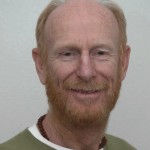The technique of Vipassana Meditation is taught at ten-day residential courses during which participants learn the basics of the method, and practice sufficiently to experience its beneficial results.
There are no charges for the courses – not even to cover the cost of food and accommodation. All expenses are met by donations from people who, having completed a course and experienced the benefits of Vipassana, wish to give others the opportunity to also benefit
Courses are given in numerous Meditation Centers and at non-center course locations at rented sites. Each location has its own schedule of courses. In most cases, an application for admission to each of these courses can be made by clicking on a selected one of the listed course dates that appear in the schedule.
There are numerous Centers in India and elsewhere in Asia/Pacific; ten Centers in North America; three Centers in Latin America; eight Centers in Europe; seven Centers in Australia/New Zealand; one Center in the Middle East and one Center in Africa.
Ten day non-center courses are frequently held at many locations outside of Centers as they are arranged by local students of Vipassana in those areas. An alphabetical list of worldwide course locations is available as well as a graphical interface of course locations worldwide and in India and Nepal.
Vipassana Meditation courses are also being taught in prisons.
A special 10-day Vipassana course especially for business executives and government officials is being held periodically at several centers around the world. For additional information visit the Executive Course Website.
 The purpose of San Francisco Zen Center is to make accessible and embody the wisdom and compassion of the Buddha as expressed in the Soto Zen tradition established by Dogen Zenji in 13th-century Japan and conveyed to us by Suzuki Roshi and other Buddhist teachers. Our practice flows from the insight that all beings are Buddha, and that sitting in meditation is itself the realization of Buddha nature, or enlightenment.
The purpose of San Francisco Zen Center is to make accessible and embody the wisdom and compassion of the Buddha as expressed in the Soto Zen tradition established by Dogen Zenji in 13th-century Japan and conveyed to us by Suzuki Roshi and other Buddhist teachers. Our practice flows from the insight that all beings are Buddha, and that sitting in meditation is itself the realization of Buddha nature, or enlightenment. With locations in LA, Santa Monica and New York, Golden Bridge is a community dedicated to the cultivation of consciousness, with the belief that “happiness is the birth right of every human being”. From the moment you step through our doors, you implicitly understand that very first principal of the teachings.
With locations in LA, Santa Monica and New York, Golden Bridge is a community dedicated to the cultivation of consciousness, with the belief that “happiness is the birth right of every human being”. From the moment you step through our doors, you implicitly understand that very first principal of the teachings. IMS’s Forest Refuge has continuously hosted experienced meditators since 2003. Its program is specifically designed to encourage sustained, longer-term retreat practice – a key component in the transmission of Buddhism from Asia to the West.
IMS’s Forest Refuge has continuously hosted experienced meditators since 2003. Its program is specifically designed to encourage sustained, longer-term retreat practice – a key component in the transmission of Buddhism from Asia to the West. Martyn Williams is an internationally known explorer and teacher of enlightenment sciences. He is the first person in the world to lead expeditions to the three extremes, Everest, the North and South Poles. He has created international youth empowerment projects that involved 60 million youth.
Martyn Williams is an internationally known explorer and teacher of enlightenment sciences. He is the first person in the world to lead expeditions to the three extremes, Everest, the North and South Poles. He has created international youth empowerment projects that involved 60 million youth.